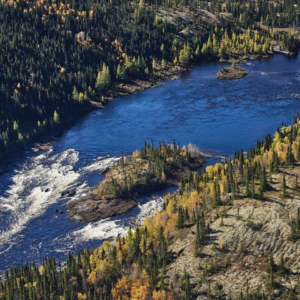Trans Mountain Decision a Win for Endangered Orcas – But They Still Need Your Help!
This blog post was written by Andrea Lesperance, a Student-at-Law for Nature Canada.
On August 30, 2018 the Federal Court of Appeal (FCA) quashed the federal government’s approval of the Trans Mountain Pipeline Expansion Project, saying the National Energy Board (NEB) review of the project failed to consider the impact of an increase in oil tanker traffic in the Salish Sea on the Southern Resident Killer Whales and that the government did not engage in sufficient consultation with Indigenous peoples impacted by the project.
Nature Canada previously intervened in the NEB’s assessment of the Trans Mountain Pipeline Expansion. In 2015, before NEB hearings on the Project began, Nature Canada filed a motion with the NEB to compel full and adequate responses by Kinder Morgan on the risk of harm to birds from an oil tanker spill and the resilience of bird populations to recover from an oil spill. Further, Nature Canada objected to the NEB’s elimination of cross-examination, arguing that this would compromise the NEB’s ability to access evidence on the project’s contribution to the public interest.
Tsleil-Waututh Nation v. Canada (Attorney General), 2018 FCA 153
In Tsleil-Waututh Nation v. Canada (Attorney General), 2018 FCA 153 the FCA found that the NEB unjustifiably excluded Project-related shipping from the definition of the Trans Mountain Pipeline Expansion Project. The FCA also found that this exclusion resulted in a failure to fulfill obligations under the Species at Risk Act (SARA) with respect to the Southern Resident Killer Whales.
The NEB had found that “the operation of Project-related marine vessels is likely to result in significant adverse effects to the Southern resident killer whale.” In addition, the NEB found that “the increase in marine vessel traffic associated with the Project is likely to result in significant adverse effects on the traditional Aboriginal use associated with the Southern resident killer whale.” However, having excluded Project-related marine shipping from the Project’s definition and concluding that SARA protections did not apply, the NEB concluded that the Project was not likely to cause significant adverse environmental effects.
Significant Adverse Environmental Effects on Southern Resident Killer Whales
The Southern Resident Killer Whales are currently experiencing stress from noise and disturbance from marine shipping and whale-watching boats.
At issue in the Tsleil-Waututh Nation v. Canada (Attorney General) case was the Project’s impact on the Southern Resident Killer Whales and their use by Indigenous peoples. In reference to marine mammals and the Southern Resident Killer Whales, the NEB found:
- Underwater noise from marine vessels related to the Trans Mountain Pipeline would be long-term and would result in sensory disturbances to marine mammals;
- Project-related marine vessels have the potential to strike a marine mammals, which would result in death or other effects;
- The increase in Project-related marine traffic would contribute to cumulative risk of marine mammal vessel strikes;
- The Southern resident killer whale population has crossed a threshold where any additional adverse environmental effects would be considered significant;
- The current level of vessel traffic in the regional study area and the predicted future increase of vessel traffic in that area, even excluding Project-related marine vessels, “have a would increase the pressure on the Southern resident killer whale population.”
Nature Canada and our supporters are demanding that the federal government take action to ensure that projects such as the Trans Mountain Pipeline and its associated tanker traffic do not wipe out the endangered Southern Resident Orcas.
We are calling on the federal government to issue an Emergency Order under the Species at Risk Act which would:
- Restrict Chinook salmon fisheries in areas where the Orcas feed;
- Enforce the 200 m buffer between marine vessels and Orcas and speed restrictions on vessels;
- Reduce noise and disturbance for commercial vessels in Orca foraging areas; and
- Project critical habitat, including the Southern Strait of Georgia National Marine Conservation Area.



